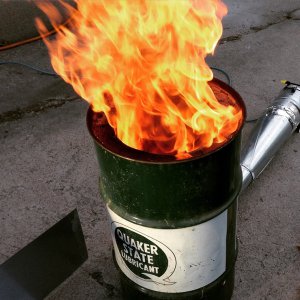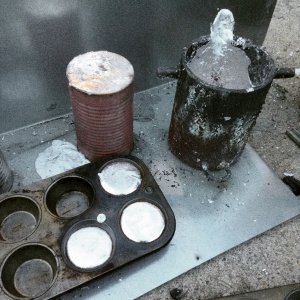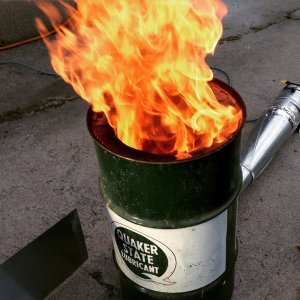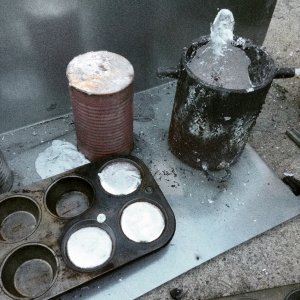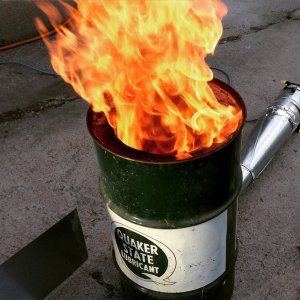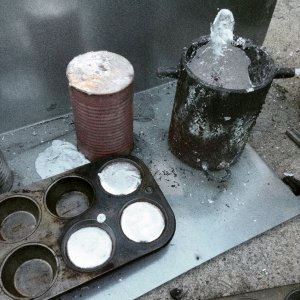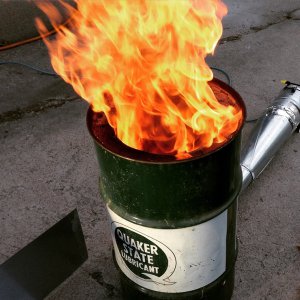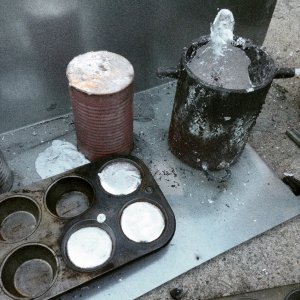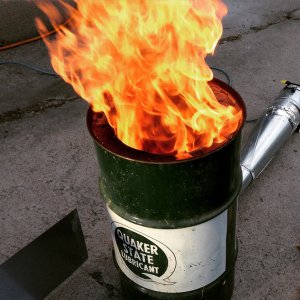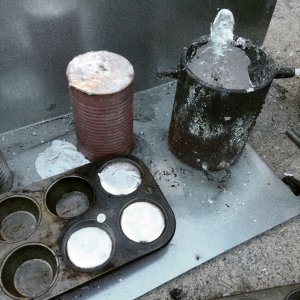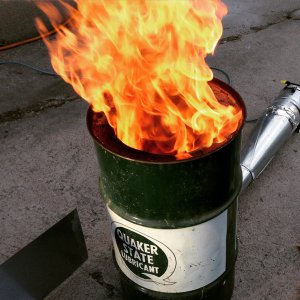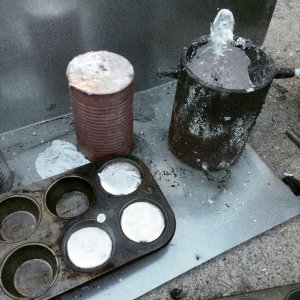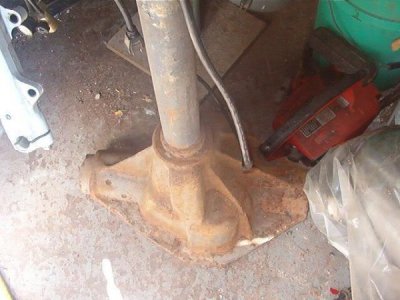- Joined
- Apr 21, 2015
- Messages
- 894
I just got a lathe. I'm anxious to get some practice on it, and I want to focus on making things to be used in making more things. I honestly have no end goal with the lathe. I just love making stuff. My next-door-neighbor watched me haul in sheets of plywood the other day and then said, "So it seems like you just like making stuff?" Yep.
Due to my inexperience and the fact that this is all for fun, it's hard to justify purchasing stock if I have other options. There are nearby scrap yards which have served me well in the past, but I work at a major car dealership. Actually I'm at one of three dealerships in our auto group on the block, plus a body shop. I have virtually unlimited access to junk car parts. If I had a use for them I could get dozens of brake rotors and such today, and dozens more in the months to come. Other parts are less common, but I see quite a bit go through.
I figure any sort of axle or power transfer type shaft is going to be decent grade for making shop tools. What else? I'm friendly with a few of the dozens of mechanics (er, Certified Automotive Repair Parts Changers), who service all makes and models, and they're willing to watch for and hold onto things for me instead of throwing them in the scrap bin. I just need to let them know what to hold.
So what would you grab?
Thanks!
Due to my inexperience and the fact that this is all for fun, it's hard to justify purchasing stock if I have other options. There are nearby scrap yards which have served me well in the past, but I work at a major car dealership. Actually I'm at one of three dealerships in our auto group on the block, plus a body shop. I have virtually unlimited access to junk car parts. If I had a use for them I could get dozens of brake rotors and such today, and dozens more in the months to come. Other parts are less common, but I see quite a bit go through.
I figure any sort of axle or power transfer type shaft is going to be decent grade for making shop tools. What else? I'm friendly with a few of the dozens of mechanics (er, Certified Automotive Repair Parts Changers), who service all makes and models, and they're willing to watch for and hold onto things for me instead of throwing them in the scrap bin. I just need to let them know what to hold.
So what would you grab?
Thanks!


